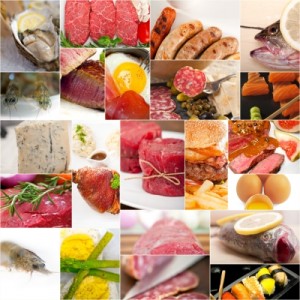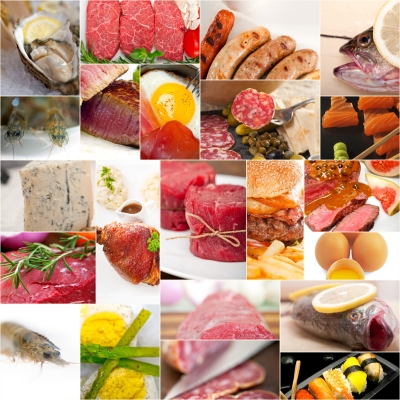Protein Consumption for Muscles
You need to increase your daily consumption of protein to increase your muscle mass. An average adult consumes less protein than he or she needs (recommended intake is 1g per kg of body weight and 1.5 to 2g for those that work out) and when the protein intake is low your body takes from its own protein reserves and you lose muscles. Protein has a variety of tasks in the proper functioning of the body, such as transporting oxygen, antibody production, synthesizing new cells, hormone making and they are the constituents of enzymes. Proteins are made of amino acids that are very important for your body and eight of these amino acids your body does not know how to produce and if one of the eight is missing then your system balance is interrupted.

So it is quite important to have a diet of a variety of nutrients and having at least two servings of different sources of protein each day. And if you increase your daily intake along with daily resistance training you will decrease your body fat percentage gradually and increase your muscle mass. To have enough energy to exercise and to integrate your muscles you do need to consume adequate amounts of carbohydrates too, preferably in the same meal as protein. The energy that your body produces when you consume carbohydrates will also help with the digestion of proteins and the functioning of muscles and will not be stored. What you put in your mouth is actually more important for muscle development than how much or how you exercise, it relies 20-30% on exercise and 70-80% on nutrition and by nutrition we mean a daily healthy diet of a variety of nutrients: Protein (amino acids) as building blocks of muscles, carbohydrates for energy and fat for vitality so you do need a variety of good quality macronutrients to build muscles effectively.
Protein from animal based meat and other animal products are great quality in terms of protein and contain all the essential amino acids and plant based proteins often lack one or two of these amino acids. The first foods that come to mind when we say high in protein is meat and both red and white meat have similar amounts of protein but the red meat is also high in iron mineral, which is an important part of hemoglobin that is also needed for the decent muscle function and the overall functioning of your body. Eggs are also very rich in protein- more than 6 grams of total protein, 3.6 grams in egg white and 2.7 grams in egg yolk which is also high in cholesterol so you should eat it in moderation, but not as little as some previous dietary guidelines recommended (3-4 eggs a day), you can comfortably have 1 or 2 a day if you are a healthy adult. Cheese is another rich source of protein, depending on the type but certainly is higher in protein than milk and is a great source of calcium, which is important for your bone health and muscle contraction.
